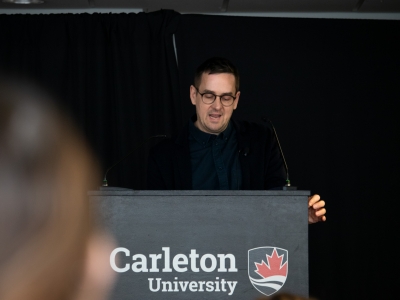NPSIA students will work in the Canadian High Commission
As the Canadian government expands its presence in the African country of Mozambique, graduate students from the Norman Paterson School of International Affairs have been invited to work first-hand with diplomats on the ground in Maputo.
Five NPSIA students will travel to Mozambique in 2015 for a three-month internship based at the Canadian High Commission. They will assist High Commissioner Shawn Barber with three high-profile portfolios: promoting Canadian trade and commercial opportunities; preventing the illegal trade of ivory and rhino horns; and harnessing social media campaign to build civil society and engage citizens to address social problems such as corruption and early forced marriage.
“Mozambique has one of the fastest growing economies in Africa and is a priority country for Canadian development investment,” says NPSIA professor Valerie Percival, who will oversee the internship while living in Mozambique. “At the same time, 60% of Mozambicans live in poverty and 56% of women aged 20 to 24 are married by the age of 17.”
Percival designed the internships in conjunction with the Institute for African Studies and Canadian High Commissioner Shawn Barber. They are funded by the Canadian High Commission, with each intern receiving a stipend of $2000 a month. A few spots remain available.
Percival says the Canadian High Commission has a relatively small office in Maputo where students will have the chance to fully participate in innovative projects, such as social media campaigns. The High Commission’s Facebook page has over 31 thousand followers.
“Social media proved an important tool in reporting abuses during the October national elections.” explains Percival. “Txeka,” Mozambican slang for ‘Check it Out,’ is a crowd-source reporting app funded by the Canadian High Commission. Mozambicans could report voting irregularities using their cell phones. Txeka was so successful, the app is being considered for empowering citizen action on other social issues, such as drug shortages and teacher absences.
But Percival says the learning experience will extend beyond the walls of the High Commission. “Students will see how Canadian foreign policy is implemented on the ground and how an Embassy or High Commission functions,” says Percival. “You cannot fully understand diplomacy or development by reading articles and textbooks. This will change their lives.”
The internship is a collaboration between the Norman Paterson School of International Affairs and the Institute of African Studies, both in the Faculty of Public Affairs.



